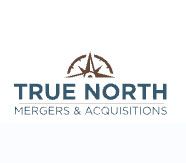Is Now the Time to Sell My Company?

True North Mergers & Acquisitions
August 15, 2024

Your company represents your life’s work. After years of hard work, relentless leadership, and diligent attention to detail, you are starting to plan for what’s next for you and the company. It’s on your mind to sell, but you worry about your legacy – will the next owner appreciate the employees, customers, and suppliers? How will selling my company affect me and my family? Will there be enough proceeds to let me live the lifestyle I always dreamt about in retirement? And with all of the headlines, inflation, and interest rates impacting the stock market, no one has a crystal ball to answer, “Is now the time to sell my company?”;
The answer is complex and will be life-changing. It is likely to be one of the most significant decisions of your life. Consider these critical aspects as you go through your decision-making.
A Buyer’s or Seller’s Market?
As we approach the second half of the decade, you’re mulling over whether you should sell and how much it is worth. Who will buy it? As you weigh selling now or waiting for more favorable market conditions, you’re likely wondering a few things about the market, including:
- Do buyers or sellers have the advantage?
- How does that answer affect the potential sales price of a company?
- Will the demand for mergers and acquisitions be more robust in 2025?
The answer to all is, of course, it depends.
Not only on trends and forecasts but the particular industry your company operates in or serves. For example, let’s say that, in general, the economic outlook is signaling it’s a buyer’s market. Your years of real-world business experience intuitively make you think valuations will be lower, so it may not be the right time to sell.
However, not all industries and companies are created equal. Yours may be a hot mergers and acquisitions commodity, which could fetch you top dollar even in a buyer’s market.
The best way to gauge if it’s a buyer’s or seller’s market for your particular company and how those trends could affect its valuation is to connect with our True North Mergers & Acquisitions president, Michael Hubsmith, who can share market insights on current conditions.
Timelines
The goal is to sell a lower middle market company using an investment bank like True North M&A about six months after hitting the market. The M&A process is complex, and there are many mileposts along the way, each with various steps. The key is to generate enough interest to create buyer competition. It is not a secret that buyer competition gives the seller and his deal team leverage to negotiate the highest price but, more significantly, the best terms that will result in the most favorable tax consequences, netting you the most cash. Here is a high-level overview of some of these:
- Understand your company and its differentiating values and what makes it unique in the industry sector, market conditions, and current M&A activity.
- Preparing the company to go to market, developing marketing collateral, and researching potential buyer target lists
- Outreach to targeted buyers, interviews, and assessing indications of interest from the marketplace to acquire your company negotiating multiple Letters of intent terms to determine the most likely to close
- Due diligence is typically the longest phase of the process and requires the attention of all team members. Often, the buyer will hire a third party to perform a Quality of Earnings analysis. They are essentially auditing the financial accuracy and operational competence of the company.
- Drafting and finalizing the necessary legal documents to close the transaction
With all these variables, there cannot be a precise closing timeline. However, the more experienced the mergers and acquisitions team you work with, the faster the closing timeline will likely be, helping you move on to the next chapter of your life much sooner.
Interest Rates
Unsurprisingly, higher interest rates impact debt service leverage or the amount of capital an investor can borrow to acquire a company. The higher the interest rate, the more cash flow the company will need to generate to fund the acquisition cost, also known as debt service coverage ratio (DSCR), which affects market valuation. The higher interest rates can deter some potential investors from pursuing deals altogether.
So what happens if the Federal Reserve’s prime interest rates drop? Could that stimulate more mergers and acquisitions activity? It’s very possible. As the cost to borrowers is reduced, it becomes much easier for buyers to finance acquisitions. They need less capital or equity to borrow more money. Easing the interest rates should boost the demand for deals and increase a company’s valuation, especially as more buyers enter the market.
How much would prime interest basis points need to drop to see an increase in mergers and acquisitions activity? Unfortunately, it is an unanswerable question. The markets have become so accustomed to historically low interest rates since the 2009 recession that even a small drop, 50 basis points or more, will stimulate pent-up demand and activate investors. However, there will always be a strong market for high-quality companies, regardless of interest rates and basis points.
The Unintended Consequences of Not Selling
Should you decide it isn’t the right time to sell your company, there may be a few unintended consequences to consider. For example, by postponing the sale now, you could risk unforeseen and less favorable market conditions down the road, which could reduce the interest in your company (less acquisitive buyer competition), which will likely mean a lower market value for your business.
Increased competition and changes in industry trends could also affect your company’s attractiveness to potential buyers, costing you significant amounts of money.
Get Guidance From True North Mergers & Acquisitions
Determining whether or not it’s the right time to sell your company requires careful evaluation of current trends, projected conditions, interest rates, potential moves of the Federal Reserve, and the overall mergers and acquisitions environment. Consult with the experienced advisors here at True North Mergers & Acquisitions to make an informed decision for you, the legacy you’ve built, and your future.
Subscribe to our Newsletter
Sign up for the latest industry insights from True North Mergers & Acquisitions.




